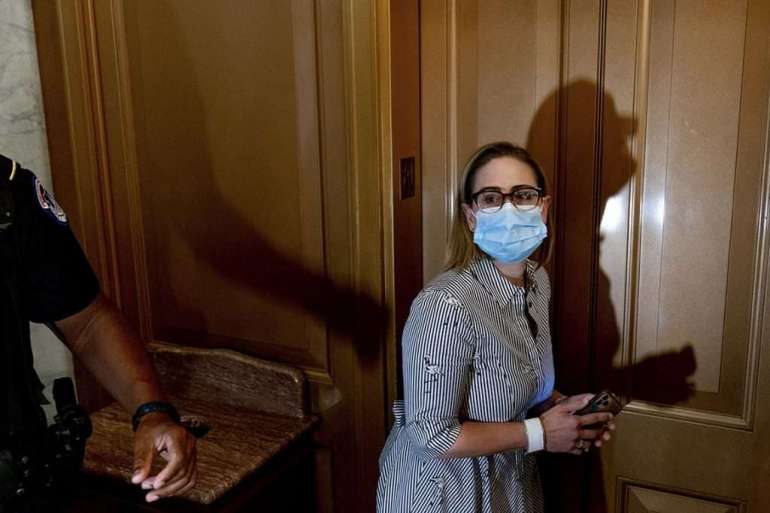Sinema reached prescription drug negotiation deal with Biden

House Democrats fired back on Thursday. A Democratic aide said they were never party to the Sinema-White House agreement and saw it as a “Trojan horse devised by Big Pharma.”
The prescription drug pricing language was ultimately left out of the framework the White House released publicly on Thursday morning, leaving its fate uncertain. Many progressives view the Peters proposal as insufficient, and a senior administration official said that drug pricing reform lacks the votes in Congress at the moment to advance.
An aide to the Energy and Commerce Committee said it never received a deal between Biden and Sinema and was not involved in back-and-forth negotiations about it. Pallone (D-N.J.) declined to say whether he had spoken to Sinema and said he believed ultimately Democrats will reach agreement on the issue.
“If we don’t, it’s only because [the pharmaceutical industry]’s really trying to kill everything and try to convince their lackeys, as they call them in Congress, not to do anything,” Pallone said.
Adding the drug pricing compromise to any final bill, if Biden tries to do so, would test whether he can coax progressives into a deal struck with Sinema, one of two high-profile holdouts for a party-line spending bill that’s now been cut in half from its initial $3.5 trillion target. Democrats may dislike what Sinema negotiated, but rejecting the president’s work would be altogether different.
That the White House has instead, for now, fully dropped drug pricing from the bill is a testament to the power of the pharmaceutical industry, which has for months poured millions of dollars into lobbying and advertising to kill the effort. Peters has pointed to the 100,000-plus drug industry jobs in his district to argue for a lighter touch in cost controls.
“It is really outrageous that year after year, members of Congress talk about the high cost of prescription drugs. And yet, year after year, we are not able to do anything about it,” said Sen. Bernie Sanders (I-Vt.).
Still, a broad swath of the Democratic caucus is deeply skeptical of the Peters bill, which only allowed government negotiation of some hospital-administered drugs and drugs whose patents have expired. Critics said it would incentivize drug companies to further game the patent system to extend those protections for decades.
Prescription drug reform also would bring in significant new revenues to help fund the rest of the bill, making it important not only on policy grounds but also on paying for the bill.
Peters estimated that his narrower bill would have generated about $200 billion in savings over 10 years, far less than the more than $450 billion House Democrats’ more aggressive drug negotiation bill would have saved but a significant chunk nonetheless.
While Peters’ bill would have also set out-of-pocket caps for seniors on Medicare and penalized companies that raised prices faster than inflation, many Democrats said it would do little to address the underlying problem of soaring costs.
“It’s a fig leaf. There isn’t negotiation where it matters,” lamented Rep. Peter Welch (D-Vt.), a key go-between on the drug provision between the Peters camp and progressives. “It will leave us at the mercy of monopoly pricing power.”
Sarah Ferris and Eugene Daniels contributed to this report.